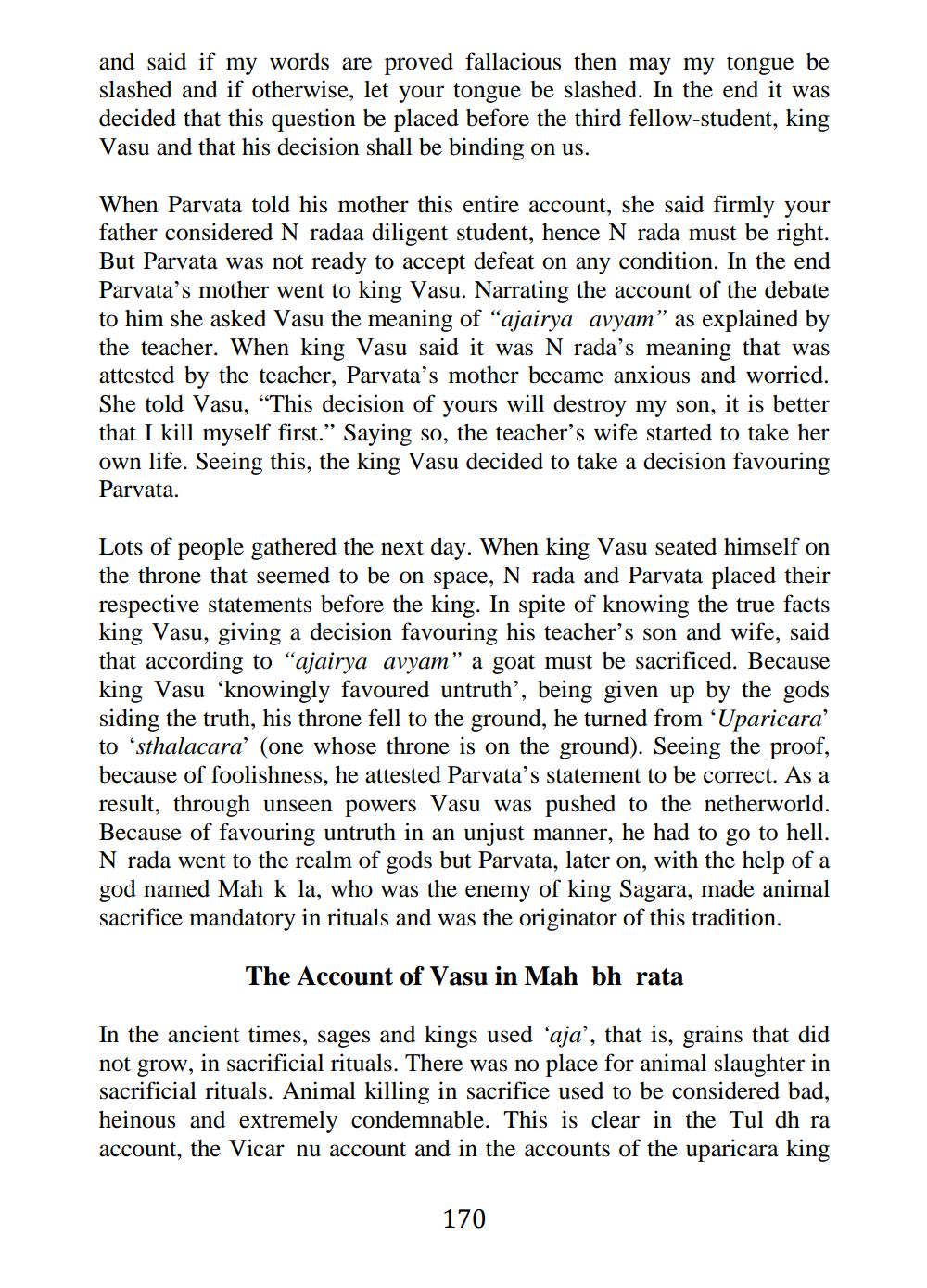________________
and said if my words are proved fallacious then may my tongue be slashed and if otherwise, let your tongue be slashed. In the end it was decided that this question be placed before the third fellow-student, king Vasu and that his decision shall be binding on us.
When Parvata told his mother this entire account, she said firmly your father considered N radaa diligent student, hence N rada must be right. But Parvata was not ready to accept defeat on any condition. In the end Parvata's mother went to king Vasu. Narrating the account of the debate to him she asked Vasu the meaning of “ajairya avyam" as explained by the teacher. When king Vasu said it was N rada's meaning that was attested by the teacher, Parvata's mother became anxious and worried. She told Vasu, “This decision of yours will destroy my son, it is better that I kill myself first." Saying so, the teacher's wife started to take her own life. Seeing this, the king Vasu decided to take a decision favouring Parvata.
Lots of people gathered the next day. When king Vasu seated himself on the throne that seemed to be on space, N rada and Parvata placed their respective statements before the king. In spite of knowing the true facts king Vasu, giving a decision favouring his teacher's son and wife, said that according to "ajairya avyam" a goat must be sacrificed. Because king Vasu “knowingly favoured untruth', being given up by the gods
ding the truth, his throne fell to the ground, he turned from 'Uparicara' to 'sthalacara' (one whose throne is on the ground). Seeing the proof, because of foolishness, he attested Parvata's statement to be correct. As a result, through unseen powers Vasu was pushed to the netherworld. Because of favouring untruth in an unjust manner, he had to go to hell. N rada went to the realm of gods but Parvata, later on, with the help of a god named Mah k la, who was the enemy of king Sagara, made animal sacrifice mandatory in rituals and was the originator of this tradition.
The Account of Vasu in Mah bh rata
In the ancient times, sages and kings used ‘aja', that is, grains that did not grow, in sacrificial rituals. There was no place for animal slaughter in sacrificial rituals. Animal killing in sacrifice used to be considered bad, heinous and extremely condemnable. This is clear in the Tul dh ra account, the Vicar nu account and in the accounts of the uparicara king
170




